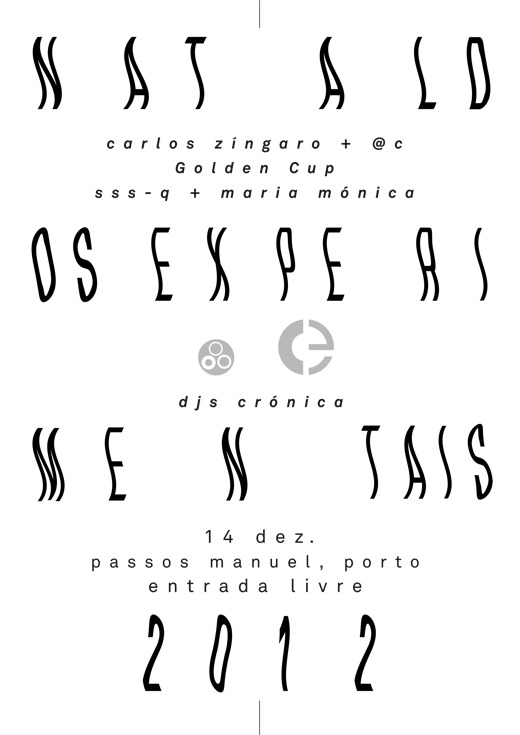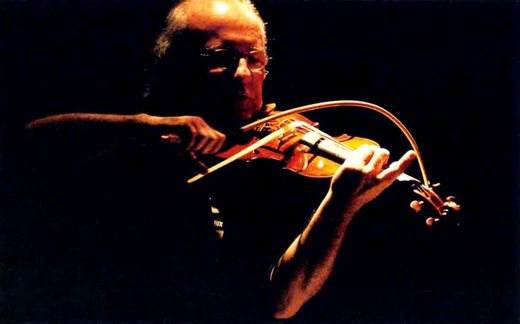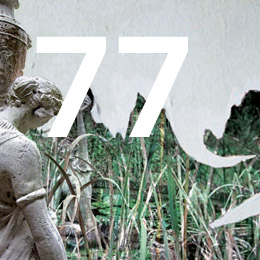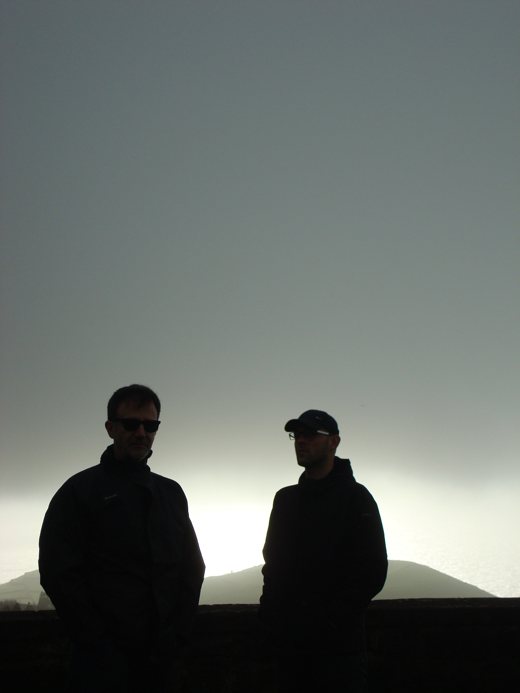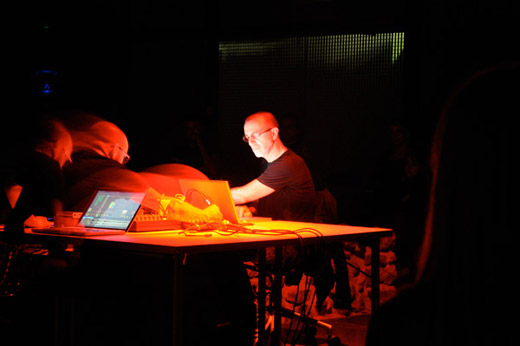
Luca Massolin’s Golden Cup project will perform at this year’s Natal dos Experimentais, next Friday in Passos Manuel, Porto. Rui Costa was unfortunately forced to cancel his participation, but we expect to feature him in a future edition.
Golden Cup is the solo project of Luca Massolin, an active figure in the young generation of outsider musicians.
Born in Italy, he is now living in Portugal. His sound is focused on string instruments (guitar, bass, mandolin), voice and analog electronics. He is constantly encouraged by his fascination for the work of the early electronic music pioneers, early 70s guitar rock as well as cosmic improvisation, minimalism, and free jazz. In his solo
recordings and live performances, as well as his involvement in Golden Jooklo Age and Neokarma jooklo experience, he developed a personal sound focusing on the power of music to create images and visions.
His efforts as bandmember and solo artist have been documented by labels such as Blackest Rainbow, Ikuisuus, Qbico, Digitalis, Troglosound, Peasant Magik, Utmarken, Holidays, Full of Nothing and his own 8mm imprint.
An intense non-stop live activity, performing in 20 nations across Europe, Middle East Asia and the United States. Playing music on stage and in the studio with artists like Anla Courtis, Peaking Lights, Takeisha Kosugi, John Paul Jones, Sonic Youth, Sachiko, The Merce Cunningham Dance Company, and Stefan Neville.
Since 2003, he runs his record label 8mm Records focused on limited editions of free improvised and obscure underground music from all over the world.
More information at the FB event.
